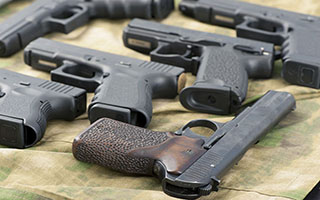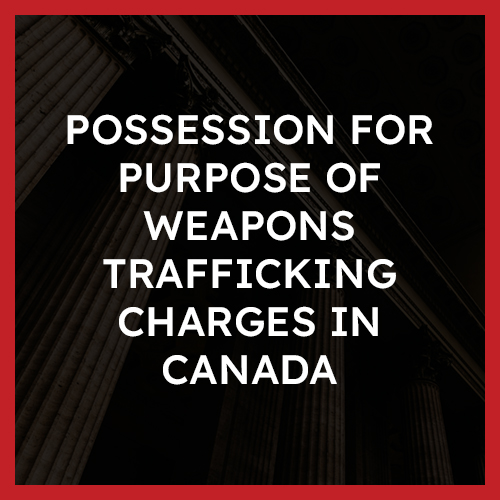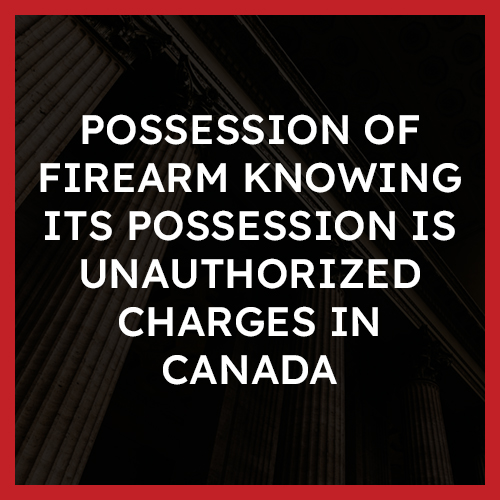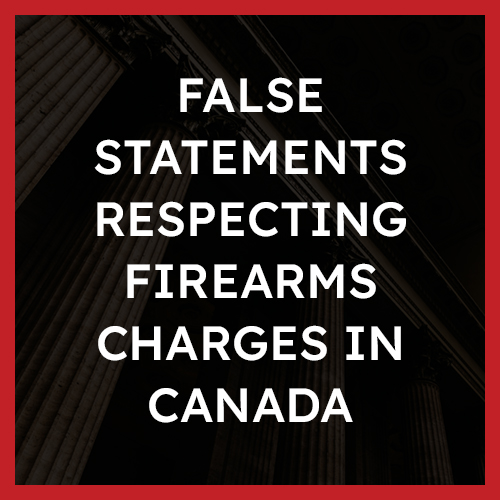What are the best defences to a firearms charge?
The best defence to your firearms charge depends on the nature of the firearm that was used and on the particular circumstances of your case. However, some common defences that are available to those charged with Use Offences are:
- You were using your weapon in a manner that met the standard of care expected of you in the circumstances.
Criminal liability in use offences flows from the allegation that you demonstrated a marked departure from the standard of care expected of you in the circumstances of your purported offence. This element of the offence can be overcome by demonstrating that while using your firearm, you took all the reasonable precautions necessary to ensure the safety of people nearby. Alternatively, you may be able to show that, on the basis of all the information available to you at the time of the alleged offence, you couldn’t have possibly known that your use of your firearm caused danger to the safety of people nearby.
- Evidence of improper use was gathered through an illegal search.
If the evidence the police have of your improper use of a firearm was gathered during an illegal search, your lawyer can argue for the exclusion of this evidence in your trial. If this argument is successful, the Crown Prosecutor will have no evidence to convict you of the offence and you will be acquitted. For example, if the police unlawfully entered your house and found improperly stored firearms, they found this evidence only by being in a position they would not have been in if they had complied with the law, so they will not be able to use it against you.
If you have been charged with a Possession or Handling Offence, some common defences include:
- There is insufficient evidence evidence that you possessed the weapon for a dangerous purpose.
If you have been charged with possession of a firearm for dangerous purposes, you may be able to overcome the charge by showing that there is doubt as to whether you had the weapon for a dangerous purpose.
- You did not know that you had a firearm in your possession.
You can overcome a possession charge by showing that you did not know that a firearm was in your possession. For example, suppose that, unbeknownst to you, your friend has placed a firearm in the center console of his car. If the police pull him over while you are getting a ride with him, search the vehicle, and find the firearm, you could be charged with a possession offence associated with that firearm. However, since the Crown needs to show that you knew about the firearm’s presence in order to secure a conviction, you can defend against this charge by demonstrating that you did not know that the firearm was there. Note that the Crown may argue that you were “wilfully blind” to the presence of the firearm, that is, that you knew it was possible that it was there, but failed to confirm or disconfirm your suspicion because you wanted to be able to say, in the event that the firearm was found in your vicinity, that you did not know that it was there. If the Crown can demonstrate that the you were wilfully blind to the presence of the firearm, you may still be found guilty of possession even if you did not “know” that the firearm was there.
- Evidence of your offence was gathered through an illegal search.
As with other firearms offences, you can defeat your criminal charges if you can demonstrate that evidence that was obtained by means of an illegal search. For example, if you are charged with a possession offence after the police searched your vehicle without lawful authority, you can get the evidence obtained during that search excluded from the trial. If you are successful, there will be no evidence to convict you. However, if you are charged with possession of a firearm without proper authorization or possession of a firearm for a dangerous purpose, expect that a forfeiture hearing will precede or follow your trial.
About The Author








